Book Recommendations from DSA’s International Committee
We asked the members of DSA’s International Committee to provide a short write-up on the books that had the most impact on them or most changed their way of thinking regarding foreign policy or international affairs. Their recommendations and thoughts are below. -Eds.
Ethan Earle on An Ordinary Person’s Guide to Empire by Arundhati Roy and Open Veins of Latin America by Eduardo Galeano
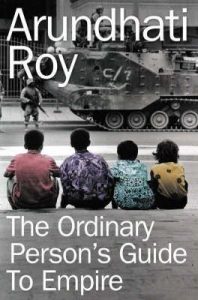 I read Arundhati Roy’s collection of essays titled An Ordinary Person’s Guide to Empire when it first came out in 2004. I was 22 years old and just finishing my senior year of university. My politics were progressive but not yet radical, and I had had little exposure to political thinkers not based in the so-called Global North. Roy’s searing indictment of Empire—from Iraq to India, “democracy building” to forever war—opened my eyes to the hypocrisies and violence of the American liberal project as seen from the other side. Her passion pulsed through the pages, ripping apart the notion that sophisticated analysis must be dry, distant, or “measured.”
I read Arundhati Roy’s collection of essays titled An Ordinary Person’s Guide to Empire when it first came out in 2004. I was 22 years old and just finishing my senior year of university. My politics were progressive but not yet radical, and I had had little exposure to political thinkers not based in the so-called Global North. Roy’s searing indictment of Empire—from Iraq to India, “democracy building” to forever war—opened my eyes to the hypocrisies and violence of the American liberal project as seen from the other side. Her passion pulsed through the pages, ripping apart the notion that sophisticated analysis must be dry, distant, or “measured.”
 I first read Eduardo Galeano’s Open Veins of Latin America in my late-twenties while pursuing a master’s degree in Argentina. It was the first book I ever read in Spanish, and as such was a laborious, slow-moving process. It was also among the most eye-opening experiences in my ongoing process of political radicalization. There may be no book that paints such a clear picture of the damage wrought by European and US foreign policy in Latin America, from early settlement through the 1960s. And Galeano’s knack for anecdotes and humor, even when telling the most terrible stories, is sorely lacking in much of the left.
I first read Eduardo Galeano’s Open Veins of Latin America in my late-twenties while pursuing a master’s degree in Argentina. It was the first book I ever read in Spanish, and as such was a laborious, slow-moving process. It was also among the most eye-opening experiences in my ongoing process of political radicalization. There may be no book that paints such a clear picture of the damage wrought by European and US foreign policy in Latin America, from early settlement through the 1960s. And Galeano’s knack for anecdotes and humor, even when telling the most terrible stories, is sorely lacking in much of the left.
Carrington Morris on The Shock Doctrine: The Rise of Disaster Capitalism by Naomi Klein
 Before committing my energy to DSA, I’d spent years puzzling over global power structures, narratives and how change happens. The Shock Doctrine was a revelation in pulling these pieces together. First in dropping scales from the eyes that empire ever acts in anyone’s interest but empire’s, but also with regard to how change happens. To realize that 20th-century Europe and the U.S. embraced social democracy not for the inherent worthiness of the idea but due to pressures from communism, socialism, unions and grassroots forces made clear to me that the people need to proceed united, en masse and strategically via an organization such as DSA to effect positive social change.
Before committing my energy to DSA, I’d spent years puzzling over global power structures, narratives and how change happens. The Shock Doctrine was a revelation in pulling these pieces together. First in dropping scales from the eyes that empire ever acts in anyone’s interest but empire’s, but also with regard to how change happens. To realize that 20th-century Europe and the U.S. embraced social democracy not for the inherent worthiness of the idea but due to pressures from communism, socialism, unions and grassroots forces made clear to me that the people need to proceed united, en masse and strategically via an organization such as DSA to effect positive social change.
Bill Fletcher, Jr. on Mao, Cabral, and Fanon
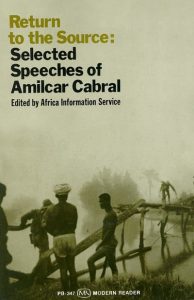
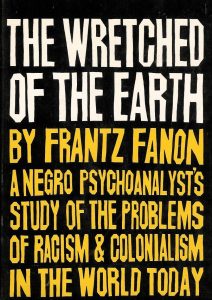 Four Essays on Philosophy by Mao Zedong was among the most influential books that shaped my political viewpoint. Equally influential was the work of Amilcar Cabral, the Cape Verdean leader of the national liberation struggle against Portugal, whose essays have, over time, been compiled in various forms, e.g., Return to the Source. What makes them so useful is the manner in which Marxism is adapted and applied in circumstances far different than Marx and Engels could have anticipated. In the same vein, there is Frantz Fanon’s Wretched of the Earth. This book had a remarkable impact on leftists around the world because of both its analysis of oppression’s impact on the colonized, as well as Fanon’s warnings of the dangers inherent in neocolonialism.
Four Essays on Philosophy by Mao Zedong was among the most influential books that shaped my political viewpoint. Equally influential was the work of Amilcar Cabral, the Cape Verdean leader of the national liberation struggle against Portugal, whose essays have, over time, been compiled in various forms, e.g., Return to the Source. What makes them so useful is the manner in which Marxism is adapted and applied in circumstances far different than Marx and Engels could have anticipated. In the same vein, there is Frantz Fanon’s Wretched of the Earth. This book had a remarkable impact on leftists around the world because of both its analysis of oppression’s impact on the colonized, as well as Fanon’s warnings of the dangers inherent in neocolonialism.
Ella Wind on The Yacoubian Building by Alaa Al Aswany and The Dark Side of Love by Rafik Schami
The Middle East is often viewed first and foremost through the lens of politics, especially geopolitics. Discussions of political developments in the region often seem to begin and end with the influence of foreign powers. People who are curious to better understand what shapes the politics of ordinary people in the Middle East can be stuck wading through endless analyses conducted from a bird’s eye (or even a satellite) view of the region.
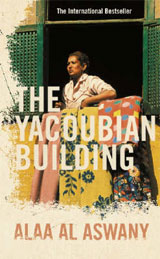 For that reason, I made the somewhat unusual choice of picking two fiction books which long ago helped me understand politics from the lens of ordinary people in the Arab world. On the recommendation of friends from the region, I read both of these books a decade ago, right before I went to study in Syria. They did far more to prepare me for that trip and my subsequent time living in the region than so many of the history and political science books on the region I had read in the years before that.
For that reason, I made the somewhat unusual choice of picking two fiction books which long ago helped me understand politics from the lens of ordinary people in the Arab world. On the recommendation of friends from the region, I read both of these books a decade ago, right before I went to study in Syria. They did far more to prepare me for that trip and my subsequent time living in the region than so many of the history and political science books on the region I had read in the years before that.
 The Dark Side of Love is a sweeping historical novel focused on mid-20th century Syria that brings to life many of the local political events of that period which still echo in Syrian politics and society to this day. Similarly, The Yacoubian Building focuses on the histories of the residents of a crumbling apartment building in downtown Cairo, illuminating the ever-shifting and criss-crossing lines that class, religion, sex, and political power draw across Egyptian society.
The Dark Side of Love is a sweeping historical novel focused on mid-20th century Syria that brings to life many of the local political events of that period which still echo in Syrian politics and society to this day. Similarly, The Yacoubian Building focuses on the histories of the residents of a crumbling apartment building in downtown Cairo, illuminating the ever-shifting and criss-crossing lines that class, religion, sex, and political power draw across Egyptian society.
Dan La Botz
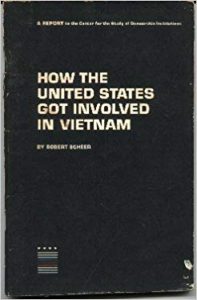 The books that influenced me were part of a collective experience based on trying to understand the political events of the time. Let me briefly mention three. I became an activist in the mid-1960s opposing the Vietnam War. We anti-war activists of that era read and studied Robert Scheer’s 80-page pamphlet How the United States Got Involved in Vietnam (1965). We learned there, through the words and deeds of America’s political leaders, how the United States’ capitalist and imperial system actually operated—and with such arrogance and disregard for ordinary people. While not necessarily all Marxists, many of us became anti-imperialists, in part through that booklet.
The books that influenced me were part of a collective experience based on trying to understand the political events of the time. Let me briefly mention three. I became an activist in the mid-1960s opposing the Vietnam War. We anti-war activists of that era read and studied Robert Scheer’s 80-page pamphlet How the United States Got Involved in Vietnam (1965). We learned there, through the words and deeds of America’s political leaders, how the United States’ capitalist and imperial system actually operated—and with such arrogance and disregard for ordinary people. While not necessarily all Marxists, many of us became anti-imperialists, in part through that booklet.
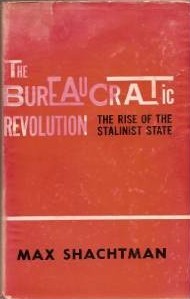 As we were organizing and demonstrating against the U.S. war in Vietnam, in 1968 the Soviet Union invaded Czechoslovakia to crush the Prague Spring movement for democratic socialism. About that time, I ran into a group, the International Socialists (IS), whose slogan was, “Neither Washington nor Moscow! For the revolutionary third camp of the international working class.” I joined, and we in the IS read Max Shachtman’s The Bureaucratic Revolution: The Rise of the Stalinist State (articles of the 1930s and 1940s, published in 1962). Shachtman argued that the Soviet Union had become a new kind of class society, ruled by the Communist bureaucracy, exploiting and oppressing the working class, and also imperialist. Later Shachtman moved far to the right, but that book provided a useful tool to understand the Soviet Union’s imperialism.
As we were organizing and demonstrating against the U.S. war in Vietnam, in 1968 the Soviet Union invaded Czechoslovakia to crush the Prague Spring movement for democratic socialism. About that time, I ran into a group, the International Socialists (IS), whose slogan was, “Neither Washington nor Moscow! For the revolutionary third camp of the international working class.” I joined, and we in the IS read Max Shachtman’s The Bureaucratic Revolution: The Rise of the Stalinist State (articles of the 1930s and 1940s, published in 1962). Shachtman argued that the Soviet Union had become a new kind of class society, ruled by the Communist bureaucracy, exploiting and oppressing the working class, and also imperialist. Later Shachtman moved far to the right, but that book provided a useful tool to understand the Soviet Union’s imperialism.
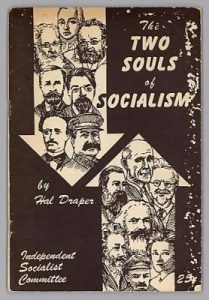 Finally, it was also through the IS that I read Hal Draper’s profoundly influential pamphlet The Two Souls of Socialism (1966), which argued that socialism had two main and antagonistic tendencies, one that believed that an elite would, in an authoritarian fashion, hand socialism down to the people, and the other that believed that the working class would have to rise up from below to establish a democratic socialist society. Since I first read it in 1969, I have found Draper’s pamphlet to be a guide to analyzing, understanding, and acting in the labor and social movements and on the left.
Finally, it was also through the IS that I read Hal Draper’s profoundly influential pamphlet The Two Souls of Socialism (1966), which argued that socialism had two main and antagonistic tendencies, one that believed that an elite would, in an authoritarian fashion, hand socialism down to the people, and the other that believed that the working class would have to rise up from below to establish a democratic socialist society. Since I first read it in 1969, I have found Draper’s pamphlet to be a guide to analyzing, understanding, and acting in the labor and social movements and on the left.
The three books I mention here helped me to understand that a socialist revolution requires an international movement, and that in turn led me later in my life to spend a great deal of time working in solidarity with Latin American progressive movements and with Latino immigrants.
Dave Grosser on Promised Land: Peasant Rebellion in Chalatenango, El Salvador by Jenny Pearce
 It’s rare that we hear the voices of ordinary people involved in extraordinary struggles, but Pearce’s account of the development of the Salvadoran revolutionary movement is based on oral histories of peasants active in rural Chalatenango, the FMLN’s strongest base area. They recount the path that led them to begin organizing for self-help and, in the face of murderous repression, take up arms for self-defense. More importantly, she shows in beautiful detail the ways that they built power in their communities, creating organs of self-government, schools, clinics, agricultural coops and more. Truly history “from the bottom up” and an inspiring illustration of Marx’s dictum “the liberation of the working class is the task of the working class itself.”
It’s rare that we hear the voices of ordinary people involved in extraordinary struggles, but Pearce’s account of the development of the Salvadoran revolutionary movement is based on oral histories of peasants active in rural Chalatenango, the FMLN’s strongest base area. They recount the path that led them to begin organizing for self-help and, in the face of murderous repression, take up arms for self-defense. More importantly, she shows in beautiful detail the ways that they built power in their communities, creating organs of self-government, schools, clinics, agricultural coops and more. Truly history “from the bottom up” and an inspiring illustration of Marx’s dictum “the liberation of the working class is the task of the working class itself.”
Carl B. on American Foreign Policy and Its Thinkers by Perry Anderson
 Recommended to me by another member of the International Committee, American Foreign Policy and Its Thinkers provided me a with coherent, overarching narrative of the development of U.S. foreign policy over the last century with a scope and flow I’ve rarely encountered. Anderson methodically and convincingly challenges received wisdom in its analysis of American empire and its relentless drive to make the world safe for capitalism. He casts a critical light on revered figures like George Kennan in the first half of the book and goes on to profile thinkers like Zbigniew Brzezinski, Francis Fukuyama, and Walter Russell Mead in the second half. I recommend reading it as a jumping off point for further exploration and for an overarching understanding of where American foreign policy has been and where it’s going.
Recommended to me by another member of the International Committee, American Foreign Policy and Its Thinkers provided me a with coherent, overarching narrative of the development of U.S. foreign policy over the last century with a scope and flow I’ve rarely encountered. Anderson methodically and convincingly challenges received wisdom in its analysis of American empire and its relentless drive to make the world safe for capitalism. He casts a critical light on revered figures like George Kennan in the first half of the book and goes on to profile thinkers like Zbigniew Brzezinski, Francis Fukuyama, and Walter Russell Mead in the second half. I recommend reading it as a jumping off point for further exploration and for an overarching understanding of where American foreign policy has been and where it’s going.
 Democratic Socialists of America
Democratic Socialists of America